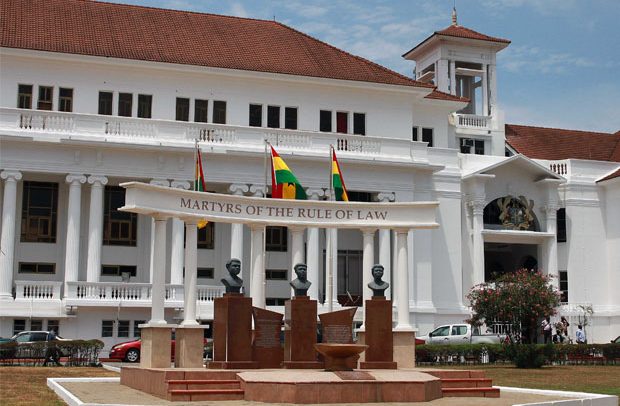THE SUPREME Court has dismissed an application for certiorari filed by businessman Seidu Agongo, who has been charged alongside former Chief Executive Officer of Ghana Cocoa Board, Dr. Stephen Opuni, for causing financial loss to the state.
The application was seeking to set aside the decision of an Accra High Court, which ordered him to file witness statements as well as all documents of his witnesses in the ongoing trial.
The trial court, presided over by Justice Clemence Honyenuga, a Supreme Court judge, sitting as an additional High Court judge, in December last year, ordered Dr. Opuni and the businessman, as well as his company, to file their witness statements.
This, the court said, was to facilitate the efficient and speedy trial of the case which has been going on since 2018.
The court further ordered that the witnesses would be given one hour to present their evidence-in-chief, and the cross-examination will span over two court sittings.
This order did not go down well with Mr. Agongo, who subsequently went to the apex court seeking a certiorari to quash the order of the court.
Moving the motion, Nutifafa Nutsukpui, counsel for Mr. Agongo, argued that the court made the consequential orders without hearing from his client on the matter.
He argued that the timelines set by the trial court differed from the opportunity given to the prosecution when it was calling its witnesses.
He said the judge’s act was in breach of Article 19(2) (G), which allows the defendant to call and examine witnesses on same conditions applicable to the prosecution.
The application was opposed by Deputy Attorney General, Alfred Tuah-Yeboah, who argued that the judge acted within his jurisdiction and per Section 69 of the Evidence Act, the judge had the power to control the mode of trial in his court.
He said the trial judge exercised that discretion in determining how witnesses should give evidence.
Mr. Tuah-Yeboah added that the trial judge never breached Article 19 of the Constitution as claimed by the applicant, but rather upheld Article 19, and therefore, urged the court to dismiss the application.
A five-member panel of the court presided over by the Chief Justice, Justice Anin Yeboah, and assisted by Justices Jones Dotse, Mariama Owusu, Gertrude Torkornoo and Henrietta Mensah-Bonsu, dismissed the application for not having any merit.
The court held that the trial judge did not exceed his jurisdiction when he made those consequential orders.
BY Gibril Abdul Razak


